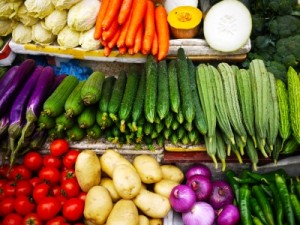There are essentially two types of Centrelink loans available and multiple options within these two…
How Much Food and Money Do You Throw Away Each Month?
 Feeling like you could eat a whole chicken is normal when you’ve skipped a meal and find yourself ravenously hungry. People will tend to stack up their plate with food, even though they know they will be unable to finish their meal – their Eyes are bigger than their stomach, with a large amount of food getting tossed. Reducing food waste is good way to stay healthy and improve your finances, for eating out and grocery shopping!
Feeling like you could eat a whole chicken is normal when you’ve skipped a meal and find yourself ravenously hungry. People will tend to stack up their plate with food, even though they know they will be unable to finish their meal – their Eyes are bigger than their stomach, with a large amount of food getting tossed. Reducing food waste is good way to stay healthy and improve your finances, for eating out and grocery shopping!
Food Waste per Household
In a survey done with over 1,600 grocery buyers in 2009 a lot of interesting facts and figures were identified in terms of wastage, although there is a bit of room for error when you factor in the fact that people may not remember the exact amount of food they threw out. There is however some governmental figures that help to back up the accuracy of what they stated in dollar losses. The federal numbers show that 4.5 million tons of food is wasted annually. The figure nearly doubles when you take hospitals, educational facilities and restaurants into account.
Monetary Impact per Household
The survey indicates that each and every Australian household wastes $616 per year on a variety of food items. Imagine being able to save that and placing it in your Super. It can add up to nearly $150,000 over the course of 40 years by interest amounts alone, let alone what it could grow into if invested wisely. It’s estimated that Australians spend upwards of $71 billion dollars on food to eat at home, at the time of this writing. NSW, South Australia and Victoria did a garbage can content count and found that upwards of 40% of all trash was food, both spoiled and simply unwanted items.
How it Effects the Environment
Wasting food by throwing it away doesn’t just cause a loss in the actual food. In the case of meats there is the cost of grains to feed the animal, water, fuel to get the animal to market, processing costs and so on. The amount of energy and resources wasted with every bit of food thrown away adds up. There is no way that any society can sustain food sources with the numbers of tonnage that is wasted annually. Things have to change before a crisis begins.
How it affects Third World Countries and Your Own Budget
It’s estimated by the experts that the amount of food wasted could feed the entirety of the Third World nations. That is definitely an eye opening piece of information. It might help end the habit of heaping the plate with food that you know you won’t be able to finish. Trimming down on the amount of food wasted means developing a source that can feed countries that don’t have the ability or resources to grow it themselves. If it helps, keep in mind that you’ll be saving nearly $616 dollars a year. A healthier budget means being able to take those mini-vacations you’ve been wanting to, but haven’t been able to afford.
Use that grocery list next time you go shopping and keep an eye out on how much you throw out each week. The savings you could be creating by becoming a more efficient shopper can be astounding.
Survey Data: The Australia Institute.
Image courtesy of kratuanoiy / FreeDigitalPhotos.net



Comments (0)